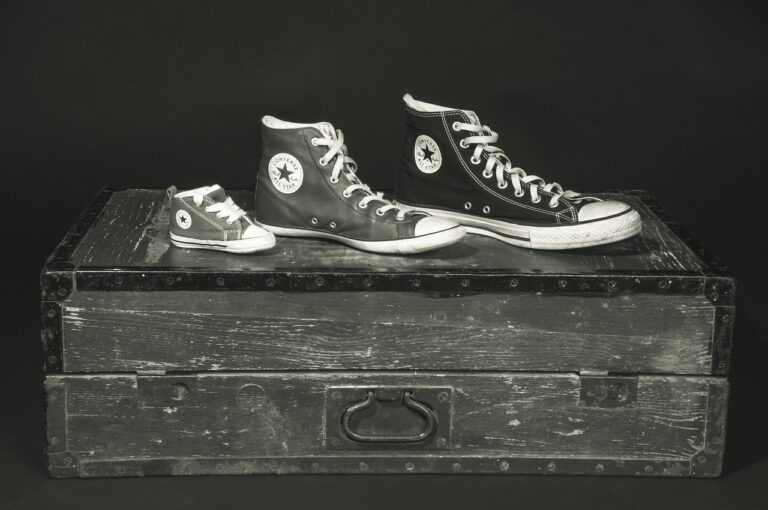Fashion Industry Trends and Insights
The fashion industry is a dynamic and ever-evolving sector that is heavily influenced by key players who shape trends and set the pace for the industry. These individuals and companies play a vital role in the creation and promotion of new styles, designs, and concepts that resonate with consumers worldwide. From renowned fashion designers and luxury brands to emerging labels and trendsetting influencers, the key players in the fashion industry come from diverse backgrounds and bring unique perspectives to the table.
Their creative vision, innovative ideas, and business acumen drive the industry forward, pushing boundaries and challenging the status quo. Through their collaborations, collections, and marketing initiatives, these key players inspire and captivate audiences, shaping the way we perceive and engage with fashion. As trendsetters and tastemakers, they wield significant influence in shaping consumer preferences, fueling demand for new products, and shaping the direction of the industry as a whole.
Impact of Social Media on Fashion Trends
Social media has revolutionized the fashion industry, providing a platform for designers, influencers, and brands to showcase their latest collections instantly to a global audience. The instantaneous nature of social media has accelerated the fashion cycle, where trends emerge and spread rapidly within days. With just a tap on a screen, consumers can now access a plethora of styles, inspiring them to experiment and evolve their own fashion sense.
Influencers play a pivotal role in shaping fashion trends through social media, as their posts have the power to influence the buying decisions of their millions of followers. By collaborating with brands and creating engaging content, influencers can effectively introduce new styles and products to a vast audience. This direct connection between influencers and consumers has democratized the fashion industry, allowing individuals to have a voice and impact on trends like never before.
• Social media has revolutionized the fashion industry, providing a platform for designers, influencers, and brands to showcase their latest collections instantly to a global audience.
• The instantaneous nature of social media has accelerated the fashion cycle, where trends emerge and spread rapidly within days.
• Consumers can now access a plethora of styles with just a tap on a screen, inspiring them to experiment and evolve their own fashion sense.
• Influencers play a pivotal role in shaping fashion trends through social media by influencing the buying decisions of their millions of followers.
• Collaborating with brands and creating engaging content allows influencers to introduce new styles and products to a vast audience.
• The direct connection between influencers and consumers has democratized the fashion industry, giving individuals a voice and impact on trends like never before.
Sustainable Fashion Practices
As the fashion industry faces growing scrutiny over its environmental impact, sustainable fashion practices have gained momentum in recent years. Designers and brands are increasingly embracing methods that prioritize eco-friendly materials, ethical production processes, and fair labor practices. This shift towards sustainability has been driven by consumer demand for transparency and accountability from fashion companies.
One key aspect of sustainable fashion is the concept of “circular fashion,” which promotes a closed-loop system where garments are designed to be recycled, upcycled, or biodegradable. By extending the lifespan of clothing and minimizing waste, circular fashion aims to reduce the industry’s carbon footprint and contribute to a more sustainable future. Collaborations between fashion brands, recyclers, and innovators are essential in driving forward these sustainable practices and fostering a greener, more socially responsible fashion industry.
What are some sustainable fashion practices that can be adopted?
Some sustainable fashion practices include using eco-friendly materials, promoting fair trade practices, reducing waste through recycling and upcycling, and supporting ethical labor practices.
How can consumers support sustainable fashion?
Consumers can support sustainable fashion by buying from brands that prioritize sustainability, shopping second-hand or vintage, and minimizing their overall consumption of fast fashion.
Why is it important for the fashion industry to embrace sustainability?
Embracing sustainability in the fashion industry is important to reduce the negative environmental and social impacts of the industry, such as pollution, waste, and poor working conditions.
How has social media influenced fashion trends?
Social media has greatly influenced fashion trends by allowing for the rapid spread of information and images, creating a platform for influencers and brands to showcase new styles, and enabling consumers to easily discover and purchase trendy items.
Who are some key players in the fashion industry leading the way in sustainable practices?
Some key players in the fashion industry leading the way in sustainable practices include Stella McCartney, Eileen Fisher, Patagonia, and H&M Conscious Collection.







